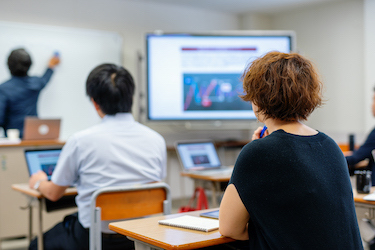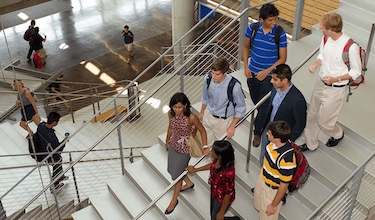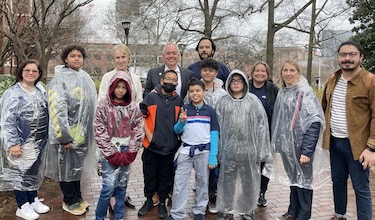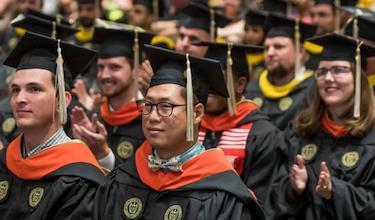Background
After the launch of Tech’s strategic plan in late 2020, working groups were formed to explore ideas and initiatives to bring the strategic focus areas to life. Nelson Baker, former dean of Georgia Tech Professional Education (GTPE), and Charles Isbell, former dean and John P. Imlay, Jr. Chair of the College of Computing, co-chaired one of those groups, called “GTPE Next.” The GTPE Next group collaborated to develop several key takeaways, one of which was to explore the creation of a new, transformational, and innovative academic unit dedicated to lifetime learning.
In late 2022, GTPE Next became the broader “lifetime learning initiative” and kicked off a multi-phased effort to explore the creation of a new college of lifetime learning.
Recent Division Milestones
April 2024
- During their April 16 meeting, the Georgia Tech Faculty voted to recommend to the president creating the College of Lifetime Learning.
September 2023
- The final report was approved. It includes a comprehensive set of recommendations and decision points to prepare the Institute to move forward, using guidance from the University System of Georgia leadership, into the next phase of work, including detailed planning and implementation of the new college.
July 2023
- The Division of Lifetime Learning is created, aligning the Center for 21st Century Universities (C21U), the Center for Education Integrating Science, Mathematics, and Computing (CEISMC), and GTPE.
- Dean Baker is announced as interim dean. Baker will lead the creation of the new unit, including establishing its leadership team.
- Phase 2 activities began, including more profound engagement opportunities for C21U, CEISMC, and GTPE, formal governance conversations with faculty leadership and the USG, and detailed implementation planning.
Leadership
Stakeholder Engagement
Town Halls
- Faculty Town Hall, March 28, 2024
- Division Town Hall, Aug. 1, 2023
- Initiative Town Hall, Nov. 7, 2022

Division of Lifetime Learning Units
News
- Nelson Baker to Lead Division of Lifetime Learning - July 13, 2023
- Working Groups Established to Explore Lifetime Learning Unit - October 14, 2022
- Georgia Tech to Explore New Academic Unit, Aligns Key Units - August 31, 2022
Foundational Work
- Thinking Forward: Foundations for a Lifetime Learning College at Georgia Tech (Georgia Tech, 2024)
- Strategic Plan 2020-2030 — Initiatives and Progress (Georgia Tech, 2020)
- Deliberate Innovation, Lifetime Education (Commission on Creating the Next in Education, Georgia Tech, 2018)




